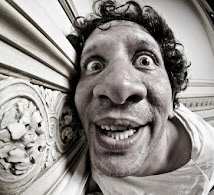AL G20 PARLA ZHOU DELLA PBOC - INTERESSANTE ARTICOLO
G20: PBoC Governor Zhou On Yuan, Capital Outflow, China’s Credit Risk
At the G-20 meeting in Shanghai today, the People’s Bank of China‘s long-time Governor Zhou Xiaochuan held a press conference, talking about his views on yuan and China’s monetary policy. He was also trying to alleviate investors’ concern over China’s debt problems.
In January, China’s credit growth rose to 18-month high, renewing concerns over China’s credit risk. Hayman Capital‘s Kyle Bass, for instance, thinks China’s property market will soon go bust and the yuan can depreciate by 30% in the next 18 months.
China’s monetary policy is only “slightly loose”, said Zhou, adding that the PBoC watches China’s leverage ratios carefully. The PBoC loosened liquidity in January to cater to money demand during the Lunar New Year and will tighten accordingly, said Zhou.
In terms of managing yuan, Zhou floated the idea of a currency corridor. He said the U.S. dollar is still the biggest component in the currency basket that PBoC benchmarks against, but PBoC may raise yen and euro’s weights down the road.
State-owned Xinhua News Agency asked Zhou about how much of the foreign exchange reserve Zhou is willing to spend to defend the yuan. Zhou said, foreign exchange reserve is like a dam – the water mark can’t go up indefinitely, and we should not worry about China’s ability to service external debt.
Zhou talked against currency war, saying “we won’t use competitive devaluation to boost exports” (translation is mine).
The Economist asked about China’s debt level, which is already at 250% of the GDP. Zhou responded that first, China’s savings rate is very high, at 50% of its GDP. Second, China’s debt level looks high only because a lot of the financing is done through bank loans. Had China’s corporations been able to access the equity markets for financing, the overall debt level would not be as bad. This argument is very similar to Chinese investment bank CICC‘s. See my February 24 blog “CICC: Why Kyle Bass Is Wrong On China“.
When asked if countries rely too much on monetary policies, Zhou seemed sympathetic. He said it is much easier to implement monetary policies than fiscal ones. Fiscal measures, by comparison, requires “approval at the Congress” and has a lot of “strings attached.” Having said that, too much of a good thing can be bad. Monetary policies can become less effective if overused.
AL G20 PARLA ZHOU DELLA PBOC - INTERESSANTE ARTICOLO
Iscriviti a:
Commenti sul post (Atom)








4 commenti:
ci mandi una foto di zia carolina? è una bella gnocca??
L'HO GIA' MESSA..
Paolo in America si parla di qe 4 draghi a breve si inventerà qls x innondare nuovamente i mercati ..qui mi sa tanto che i Shortisti è meglio tirare i remi in barca pentirsi è mettersi Long ..cosa ne pensi ?
viva viva Carolina
che gran bella passerina
qualche volta ci indovina
qualche volta si incasina
per non sbagliare mai
segui solo il buon Barrai!!
Posta un commento